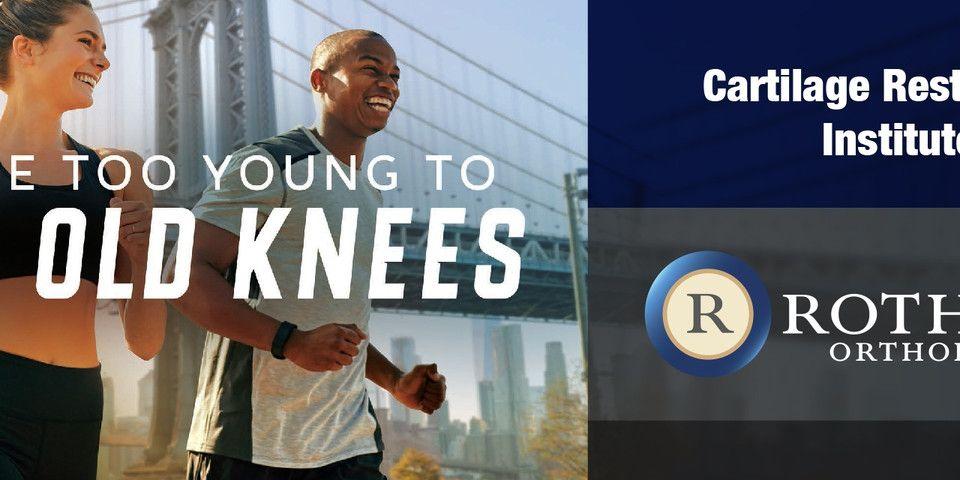Not all PCl injury treatment has to be surgical--discover alternative options.
Experiencing a leg muscle or ligament injury is never easy, and injuring your posterior cruciate ligament (PCL) can be painful and frustrating. With the right treatment and advice from compassionate physicians such as those at Rothman Orthopaedic Institute, finding PCL injury treatment in North Jersey can be a quick and easy process.
What is the PCL?
Along with other ligaments, the anterior cruciate ligament (ACL) and the posterior cruciate ligament function as stabilizing ligaments in the knee joint. The PCL connects the thigh bone (femur) to your shin bone (tibia). The PCL is stronger and broader than the ACL and, as such, is usually injured in unique circumstances.
How is the PCL Commonly Injured?
The PCL is usually injured as a result of either sudden trauma to the knee or by the over-extension of the knee joint. Patients who suffer an injured PCL will experience acute pain in the knee joint, followed by steady swelling and stiffening.
PCL injuries, being rather less common than other knee ligament injuries, are generally classified as sprains and are likewise rated on a scale of severity: grade 1, grade 2, and grade 3 sprains.
Grade 1 sprains - a mildly damaged PCL, marked by soreness but still able to provide stability.
Grade 2 sprains - the PCL is stretched to the point of loosening, referred to as a partial tear.
Grade 3 sprains - the injury is a complete tear, and the PCL has been torn into two parts, rendering the knee unstable.
Most PCL injuries are partial tears and are able to heal on their own, allowing patients to usually return to sports and other activities without further complications.
In the event that your PCL injury is beyond a partial tear, and is a Grade 3 sprain or involves the other injuries (combined injuries), your physician may recommend seeking surgical treatment instead. Expert North Jersey PCL injury treatment is more accessible than ever when you come to one of Rothman Orthopaedic Institute’s facilities for treatment.
PCL Injury Treatment in North Jersey
If you’re in North Jersey and are in need of treatment for a PCL injury, Rothman Orthopaedic Institute is here for you. Your Rothman Orthopaedic Institute physician will likely recommend a regimen of nonsurgical treatment consisting of a few simple methods to help you return to ideal physical condition. These methods include:
-
RICE - Rest, Ice, Compression, and Elevation: every day simple solutions to help recovery.
-
Support - your physician may recommend you wear a brace to prevent your knee from moving too much.
-
Physical Therapy - certain exercises will be helpful in returning your knee to proper physical condition, once the swelling has subsided. Your physician will provide you with a proper exercise regimen depending on the severity of your injury.
If your PCL injury is a Grade 3 sprain, or if you have combined injuries, your physician may recommend surgical treatment. Surgery will usually involve rebuilding the ligament with a tissue graft. Ask your Rothman Orthopaedic Institute physician if tissue graft surgery is necessary for your injury.
A Reliable Provider of Orthopaedic Care
We understand how hard it can be to have to deal with a ligament injury and be forced to seek PCL injury treatment in North Jersey. Our conveniently located offices are here for your benefit, and our experienced and compassionate orthopedic physicians are ready and willing to get you the care you need. Each of our physicians is highly trained and specialized and utilizes the most recent technology and treatments so you can have confidence that you are receiving the highest quality of care available. For more information on finding PCL injury treatment in North Jersey, or to schedule an appointment, visit us here or contact us at 1-800-321-9999.
Related Specialties
Related Physicians
Related Conditions
Related Treatments
Related Services
Related Programs
-

Cartilage Restoration Institute
This is a center where patients can go to have their disabled joint biological resurfaced, realigned, and stabilized without having the joint replaced by artificial materials such as metal and plastic. It is well known that the outcomes of patients under the age of 50 undergoing artificial joint replacement are not as good as we would like. Therefore we feel the future of Orthopaedics is to try to restore a joint back to its original anatomy by realignment, ligament reconstruction, and cartilage restoration.Read More





